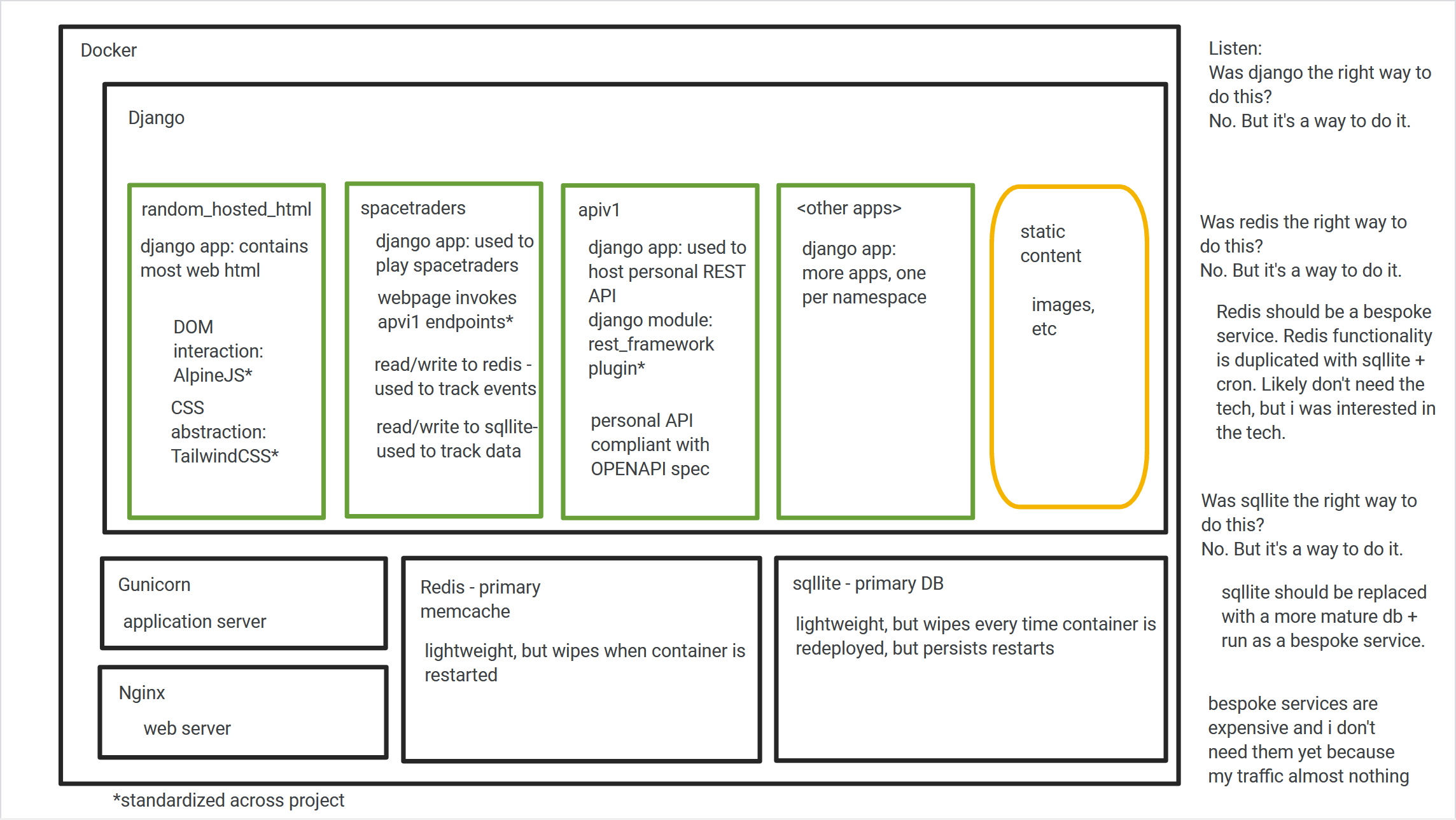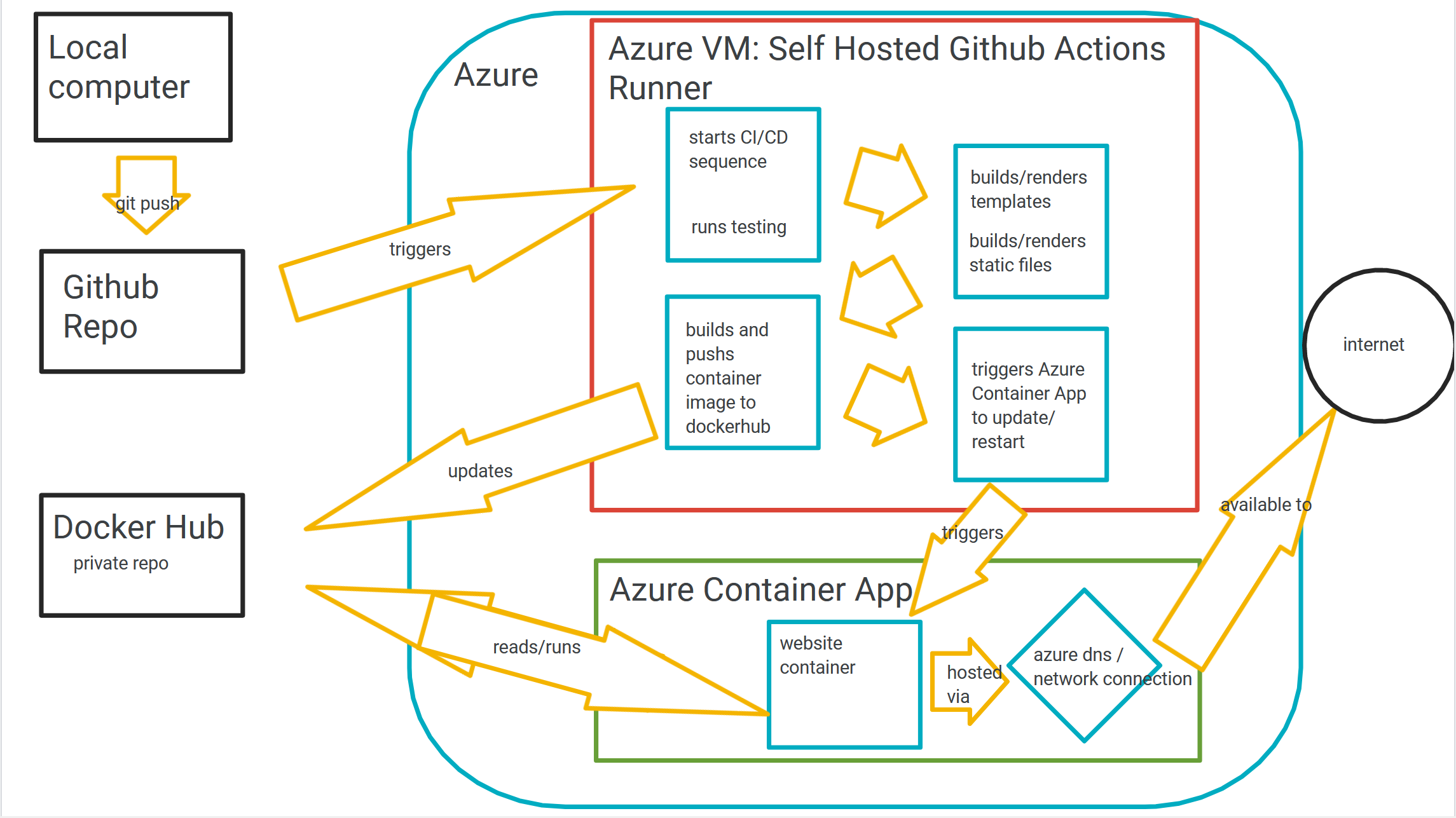Why's this look like a rough project?
Because it is. This is a rough project. It's a project that I'm using to learn about web development, deployment, and other related topics. This project is a way for me to experiment and learn new things. I'm using this project to practice my skills and gain experience in web development. I'm also using it to explore different technologies and tools that are available for building and deploying web applications. It's a work in progress, and I'm constantly making changes and improvements to it. I'm learning as I go, so please bear with me as I continue to develop and refine this project. I appreciate your patience and understanding as I work on this project. Thank you for visiting and for your interest in my work. I hope you find something interesting or useful here. If you have any feedback or suggestions, please feel free to reach out to me. I'm always open to hearing from others and learning from their experiences. Thank you for your support and encouragement. I look forward to sharing more with you in the future.
WTF? What's going on here?
Running an app involves several components and technologies. In this case, we have an app written in Python using the Django framework. Django is a powerful web framework that simplifies the process of building web applications. The app is hosted on a Docker container, which provides a lightweight and isolated environment for running the app. Docker allows us to package the app and its dependencies into a single container, making it easy to deploy and manage. By using containers, we can ensure that the app runs consistently across different environments. Furthermore, the app is being hosted on an Azure Container App. Azure Container App is a fully managed service that simplifies the deployment and management of containerized applications. It provides a scalable and reliable platform for running containerized apps, allowing us to focus on developing the app itself rather than managing the infrastructure. By leveraging the combination of Python, Django, Docker, and Azure Container App, we can build and deploy robust web applications that are scalable, portable, and easy to manage. In addition to Python, Django, Docker, and Azure Container App, our web application stack includes several other components. Firstly, we use SQLite as the database management system. SQLite is a lightweight and serverless database engine that allows us to store and retrieve data efficiently. It is a popular choice for small to medium-sized applications due to its simplicity and ease of use. To enhance the performance of our application, we utilize Redis as a caching mechanism. Redis is an in-memory data store that allows us to store frequently accessed data in memory, reducing the load on the database and improving response times. It provides fast read and write operations, making it ideal for caching frequently accessed data. To handle incoming requests and serve our application, we use Gunicorn as the application server. Gunicorn is a Python WSGI HTTP server that can handle multiple concurrent requests efficiently. It acts as a bridge between the web server and the Django application, ensuring smooth communication and optimal performance. Finally, we employ Nginx as the web server. Nginx is a high-performance web server that excels at handling static files and efficiently routing requests to the appropriate application server. It acts as a reverse proxy, load balancer, and cache server, providing an additional layer of security and scalability to our application. By combining SQLite, Redis, Gunicorn, and Nginx with Python, Django, Docker, and Azure Container App, we create a comprehensive and robust web application stack that delivers high performance, scalability, and reliability.
The Stacc

The deployment process
